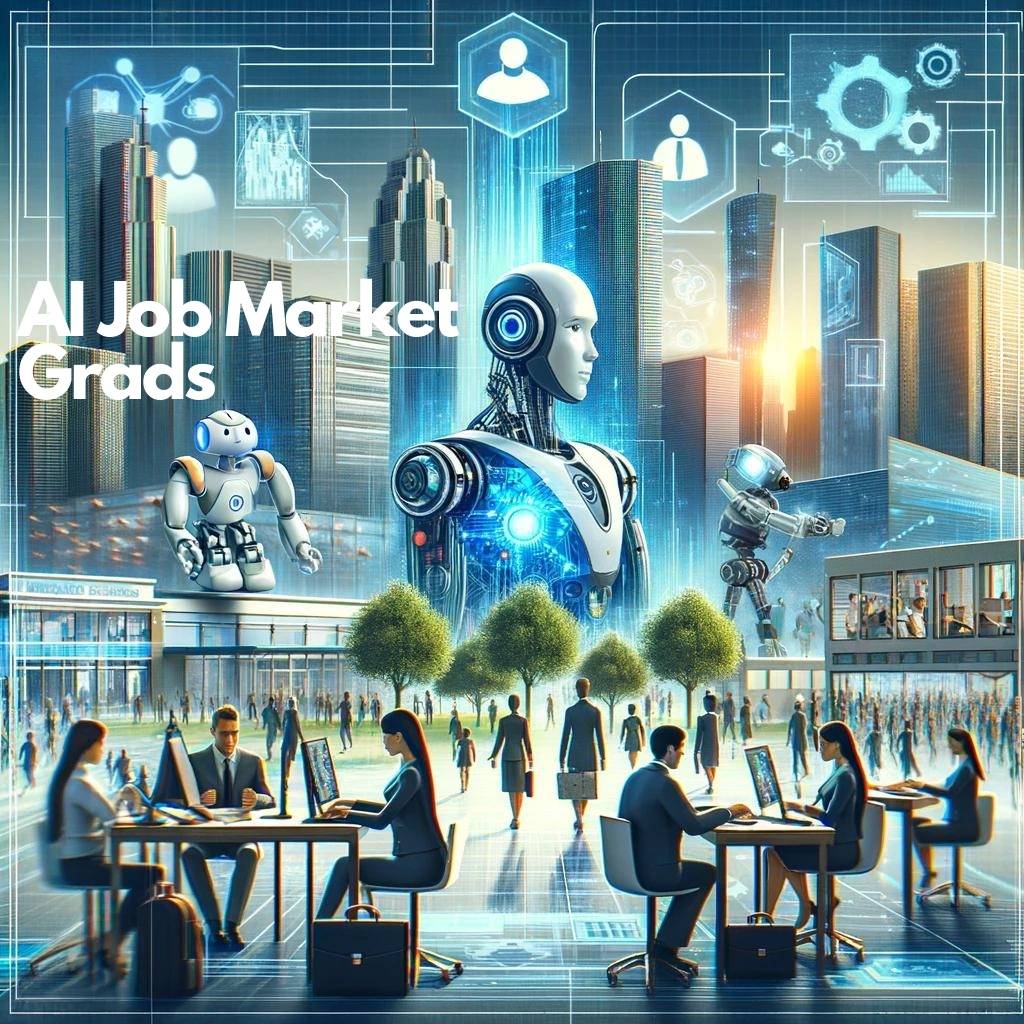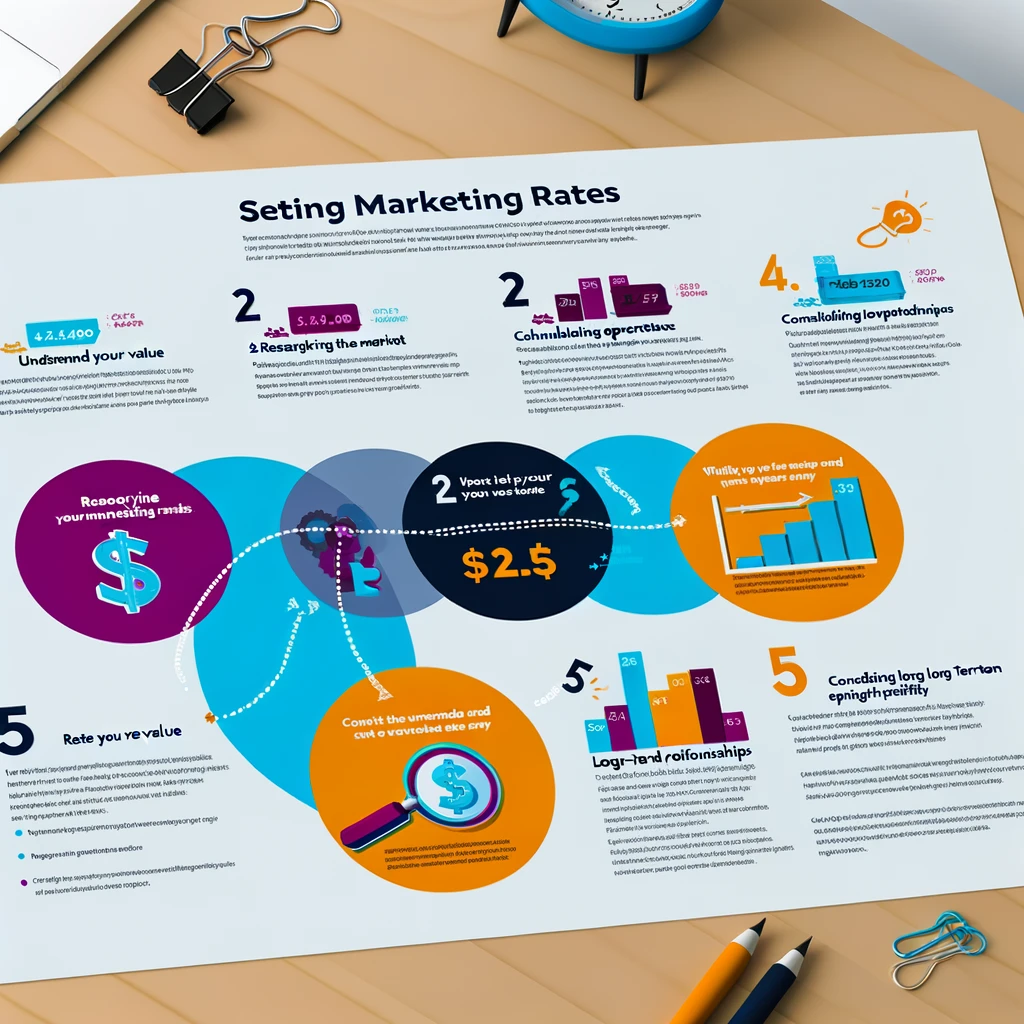
Navigating the AI-Driven Job Market: Essential Insights and Strategies for New Graduates
In an era increasingly dominated by artificial intelligence, the job market landscape is undergoing significant transformations that both challenge and create opportunities for new graduates. As someone who has navigated these tumultuous waters and now helps others to do the same, I’ve observed firsthand the dual-edged sword that technology presents in the professional world.
The surge in AI-driven technologies has reshaped how businesses operate and the skills they prioritize. For many new graduates, this means confronting a job market that is markedly different from that of even a decade ago. On the positive side, AI has automated mundane tasks, allowing employees to focus on more creative and strategic activities. However, the flip side is that the same technology has made some traditional entry-level jobs obsolete, pushing graduates to either specialize further or diversify their skills more than before.
To stand out in this AI-centric job market, graduates need to bring something unique to the table—be it specialized knowledge in machine learning, proficiency in AI-driven analytics tools, or the soft skills necessary to navigate a tech-driven workplace. Think of it as adding spices to a well-trodden recipe; the basic ingredients—the skills taught in school—remain the same, but the seasoning—the unique skills you acquire and refine—can make all the difference in catching an employer’s eye.

In the following sections, we’ll delve deeper into both the opportunities and the pitfalls presented by the AI-driven job market, offering practical tips for new graduates to enhance their employability. This will include a detailed list of AI-related skills that are in high demand, as well as a discussion on the importance of adaptability and continuous learning in an ever-evolving career landscape.
Skills That Make You Stand Out in an AI-Driven Job Market
As we transition to discussing specific skills that can give new graduates an edge, it’s essential to understand that the AI-driven job market values a blend of technical prowess and adaptive soft skills. Below, I’ll list and explain key skills that are vital for thriving in this new environment.
- Technical Skills:
- Data Analysis: Proficiency in data analysis software like Python or R is indispensable. Businesses increasingly rely on data to make decisions, and the ability to interpret this data can set you apart.
- Machine Learning: Understanding basic machine learning algorithms and their applications can open doors in numerous tech-driven industries.
- Programming: Skills in programming languages such as Python, Java, and Scala are often required, not just for development roles but across various tech-driven tasks.
- Soft Skills:
- Problem-Solving: The capacity to approach complex problems and devise effective solutions is crucial in a landscape where automation handles straightforward tasks.
- Adaptability: With the rapid pace of technological change, the ability to learn and adapt to new tools and systems is more valuable than ever.
- Communication: The importance of being able to communicate complex technical details effectively to non-tech stakeholders cannot be overstated.
In the table below, you can see a comparison of these skills with the estimated increase in demand over the next five years:
| Skill Category | Skills | Estimated Increase in Demand |
|---|---|---|
| Technical | Data Analysis, Machine Learning, Programming | 30% – 50% |
| Soft | Problem-Solving, Adaptability, Communication | 20% – 40% |
This data highlights the growing need for a robust set of skills that blend technical knowledge with the ability to manage and adapt to change.

By equipping themselves with these skills, new graduates can not only adapt to but also thrive in an AI-driven job market. Next, I will discuss the impact of these technological advancements on traditional career paths and how to navigate the shifting terrain.
The impact of artificial intelligence on career paths is profound and widespread, affecting industries from finance to healthcare. As a seasoned professional observing these shifts, I can affirm that the traditional career ladder has evolved into a more complex career web, where lateral moves, continuous learning, and skill adaptation are crucial.
Traditional Careers Transformed by AI
Many conventional roles are being redefined. For example, accountants now need to be proficient with AI-driven financial software, which can automate routine bookkeeping tasks but also requires a new level of oversight and analysis.
Healthcare: AI in healthcare is not just about robotic surgeries; it’s increasingly about predictive analytics and personalized medicine, demanding a new skill set from medical professionals.
Marketing: Digital marketing careers now hinge on leveraging AI tools for consumer behavior analysis, automated content creation, and targeted advertising.
Embracing a Non-Linear Career Trajectory
The non-linear career trajectory necessitates a mindset shift:
- Flexibility: Embrace diverse career opportunities even if they don’t follow a straight path.
- Lifelong Learning: Continuously update your skills in response to evolving technology.
- Networking: Build a robust professional network that includes peers in emerging tech fields.
Strategies for Success
- Continuous Education: Engage in ongoing education, whether through formal degrees, online courses, or industry certifications.
- Specialization vs. Diversification: Decide whether to specialize deeply in a niche area, like AI ethics, or diversify skills across broader tech applications.

Pros and Cons of Career Adaptability in AI-Driven Industries
Pros:
- Higher Flexibility: Ability to move across different roles and industries.
- Increased Job Security: As AI evolves, having adaptable, up-to-date skills can lead to greater job security.
Cons:
- Constant Learning Curve: The need for continual skill updates can be demanding.
- Job Displacement: Certain roles may become obsolete, requiring significant career changes.
In the following table, you will find examples of traditional roles and their AI-driven counterparts:
| Traditional Role | AI-Driven Counterpart |
|---|---|
| Accountant | AI Financial Analyst |
| Surgeon | Robotic Surgery Specialist |
| Marketer | AI-Driven Digital Marketer |
Understanding these transformations helps new graduates prepare for the realities of a job market where adaptability is key. With the right approach, these challenges can be transformed into opportunities for career growth and innovation.
Practical Tips for New Graduates to Adapt and Succeed in an AI-Driven Job Market
As new graduates enter a job market increasingly influenced by AI, there are strategic steps they can take to not only adapt but also excel. These tips, grounded in deep industry experience, aim to equip new entrants with the tools they need to navigate this evolving landscape effectively.
Building a Future-Proof Career
- Enhance Your AI Literacy:
- Understand the Basics: Familiarize yourself with the fundamental concepts of AI and how they’re applied in your field.
- Stay Current: Keep up with the latest AI advancements by following relevant publications, influencers, and industry news.
- Develop a Hybrid Skill Set:
- Technical Skills: Even if you’re not in a tech-centric role, understanding the technology behind AI tools in your industry can be a significant advantage.
- Soft Skills: Focus on developing strong communication, leadership, and emotional intelligence skills that AI cannot replicate.
- Engage in Continuous Learning:
- Formal Education: Consider advanced degrees or certifications in AI-related fields.
- Online Courses: Utilize platforms like Coursera, edX, or Udemy to access specialized courses tailored to AI applications in various industries.
- Network Intelligently:
- Professional Groups: Join relevant groups and forums that focus on AI innovations in your sector.
- Mentorship: Seek mentors who are established in AI roles to gain insights and advice.
- Adaptability Is Key:
- Be Open to Change: Be willing to shift roles or industries as AI reshapes the job landscape.
- Innovative Thinking: Embrace creative solutions and be proactive in using AI to solve industry-specific problems.

Practical Example: AI in Action
To illustrate, let’s consider a case study of a new marketing graduate entering the workforce. By learning to use AI tools for customer data analysis and automated content creation, they can not only perform their role more efficiently but also provide insights that lead to more effective marketing strategies.
Pros and Cons of Embracing AI in Your Career
Pros:
- Competitive Edge: Using AI can differentiate you from other candidates and colleagues.
- Efficiency: AI can streamline tasks, allowing you to focus on higher-value work.
Cons:
- Ongoing Education Requirement: Staying relevant requires continuous learning and upskilling.
- Dependence on Technology: Over-reliance on AI could be detrimental if the technology fails or becomes obsolete.
The Future Outlook for New Graduates in an AI-Driven Job Market
As we conclude our exploration of the AI-driven job market and its implications for new graduates, it’s clear that the integration of artificial intelligence into various industries is not just a passing trend but a fundamental shift in how businesses operate and recruit talent. The future for new graduates, while filled with challenges, is also ripe with opportunities for those who are proactive and prepared to embrace these changes.
Key Takeaways for Succeeding in an AI-Enhanced Job Market
- Embrace Technological Integration:
- Understanding and integrating AI into your professional skill set is no longer optional but essential for career advancement.
- Focus on Lifelong Learning:
- The rapid evolution of AI technology demands continuous education and skill development to stay relevant and competitive.
- Cultivate Adaptability and Flexibility:
- The ability to adapt to new roles, learn new technologies, and pivot between career paths is crucial in a dynamic job market shaped by AI.
- Enhance Your Unique Human Skills:
- In a world where many tasks can be automated, human-centric skills like critical thinking, creativity, empathy, and interpersonal communication become more valuable.
Predictions for the Future
Looking ahead, we can anticipate:
- Increased Demand for AI Literacy: Proficiency in AI and understanding its applications will become basic requirements across many fields.
- New Career Opportunities: AI will create new job categories that we can scarcely imagine today, offering fresh avenues for employment.
- Greater Emphasis on Soft Skills: As AI takes over routine tasks, the human touch in strategic decision-making, leadership, and customer interactions will become more prominent.
Closing Thoughts
The journey for new graduates entering an AI-driven job market can seem daunting, but it is also exhilarating. The key to success lies in leveraging these advanced technologies to enhance your capabilities and finding ways to differentiate yourself through both your technical and soft skills.
In essence, while AI reshapes the landscape, it is the uniquely human ability to adapt, innovate, and connect that will define the most successful careers. By anticipating changes, embracing continuous learning, and developing a well-rounded skill set, new graduates can not only survive but thrive in this new era.
This comprehensive look at the AI-driven job market for new graduates aims to provide both insight and actionable strategies to help you navigate and succeed in your future career endeavors. Embrace the change, for it is in this evolving landscape that tremendous opportunities lie.


